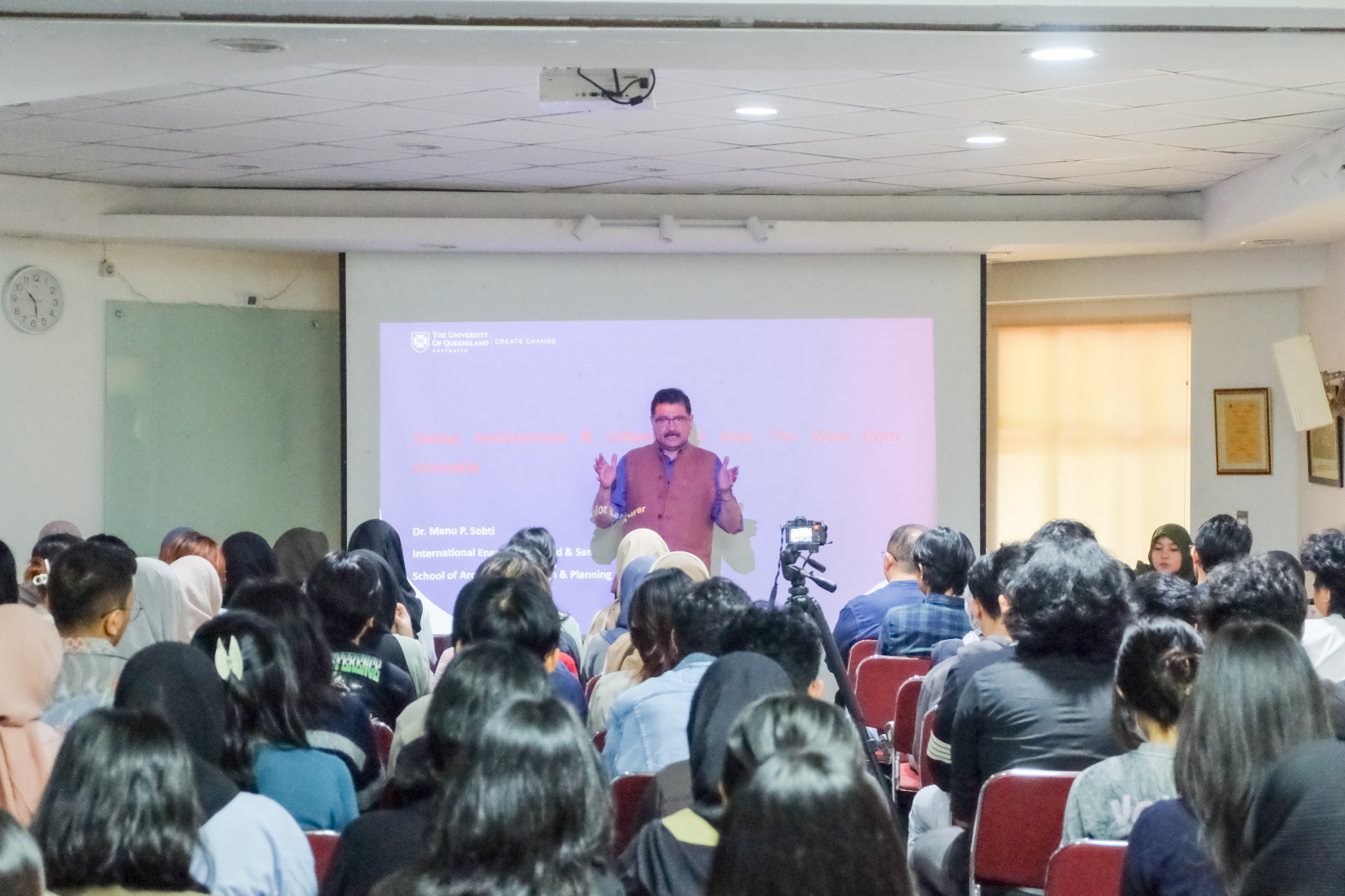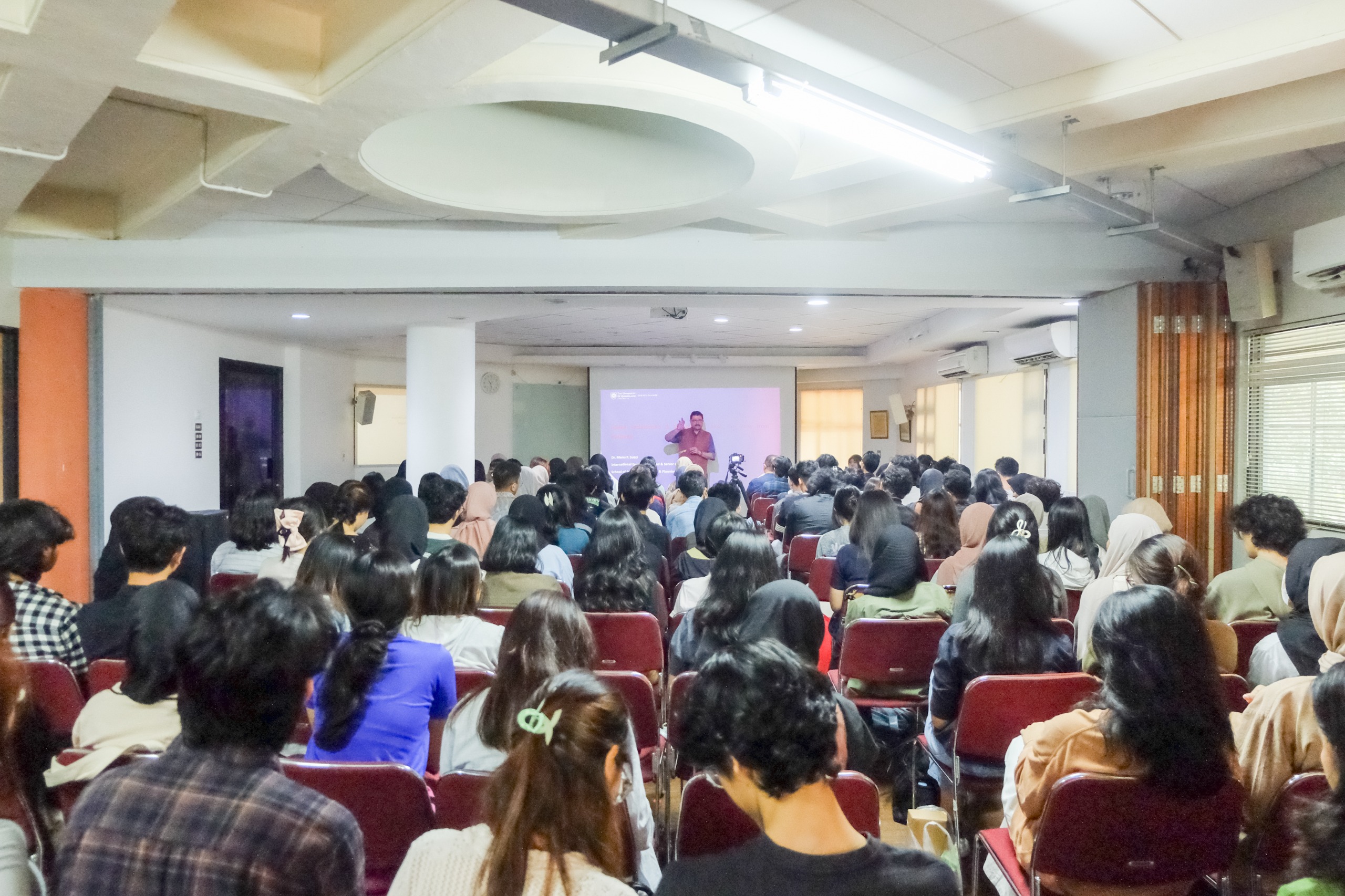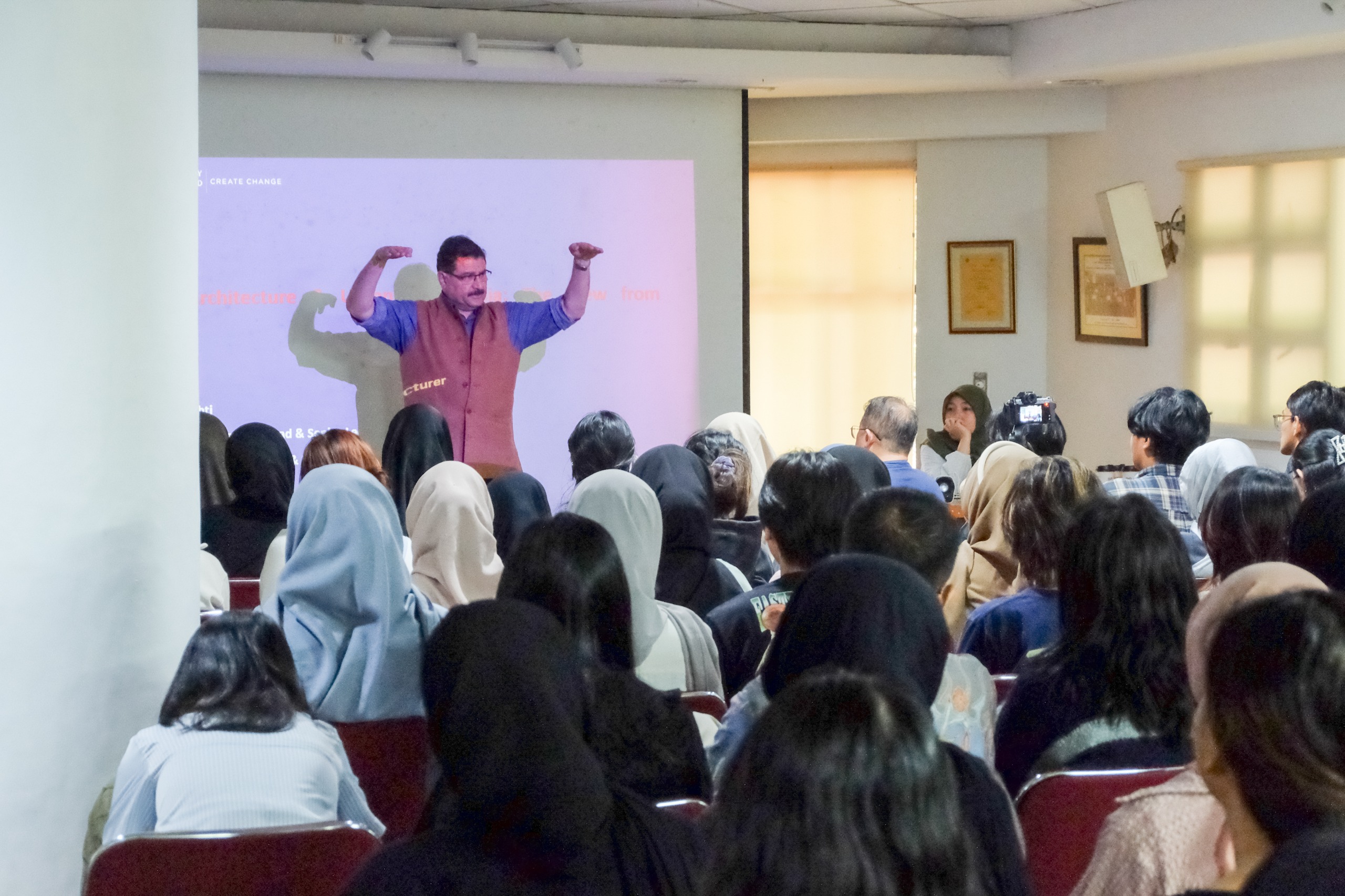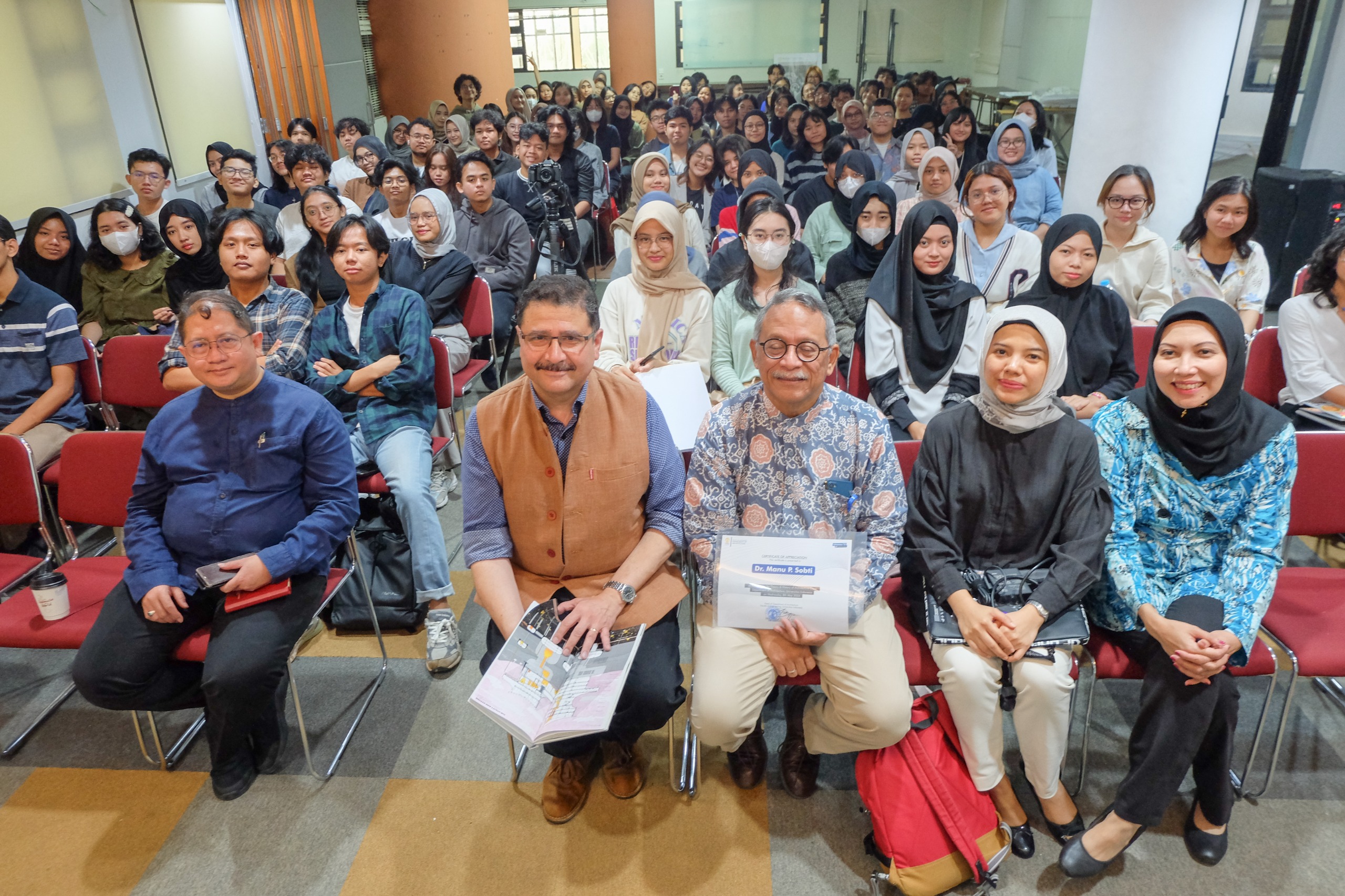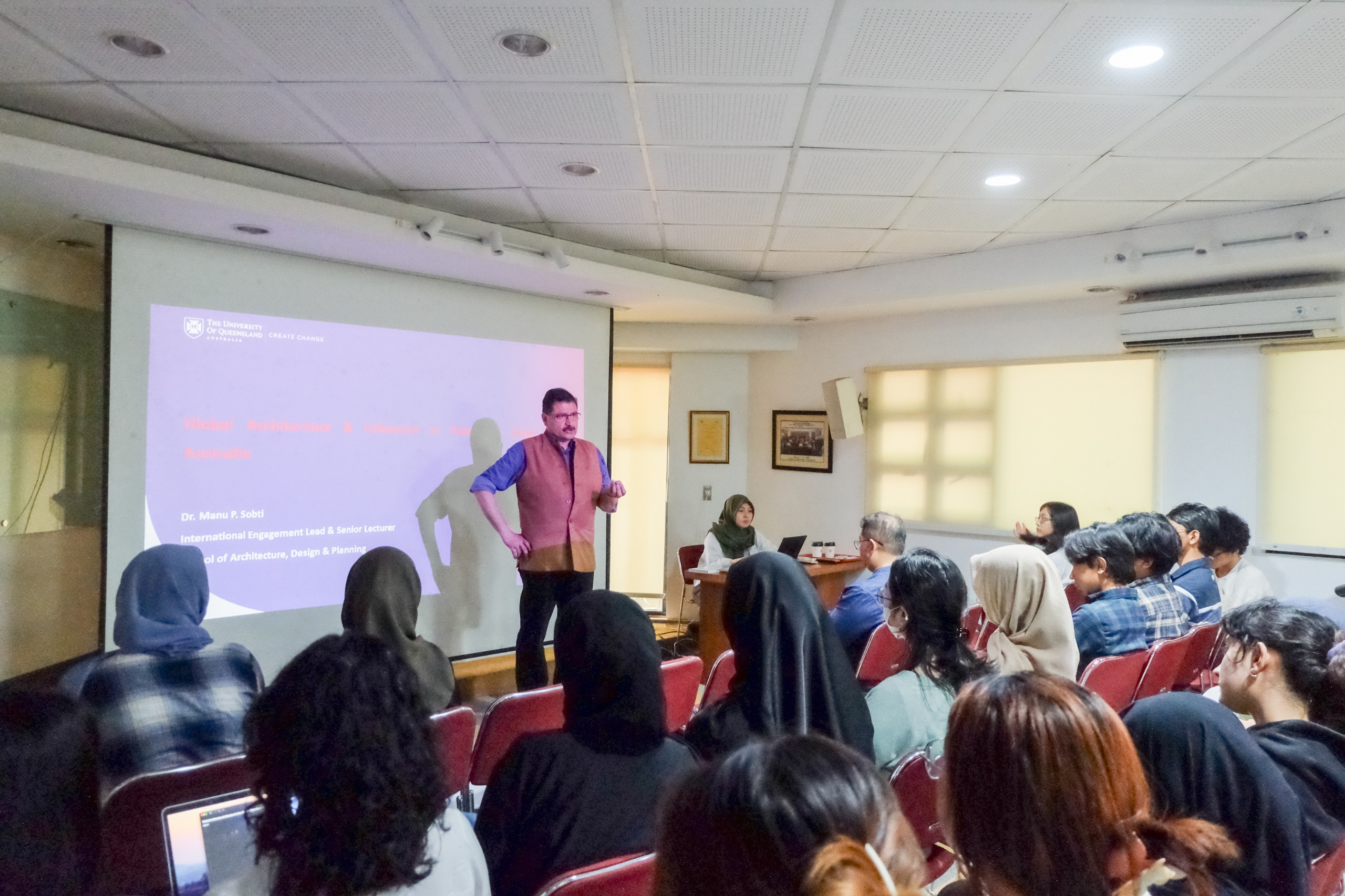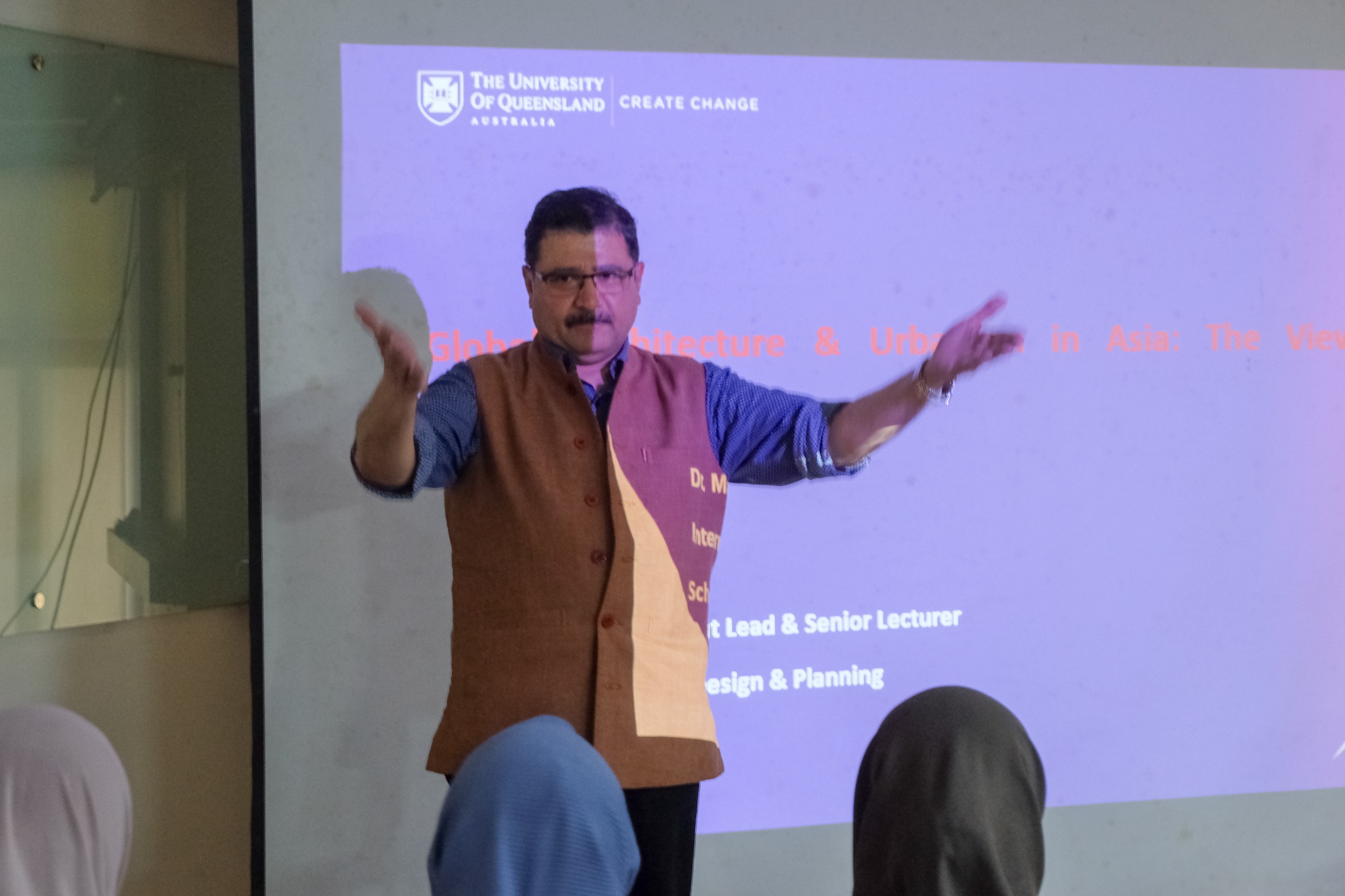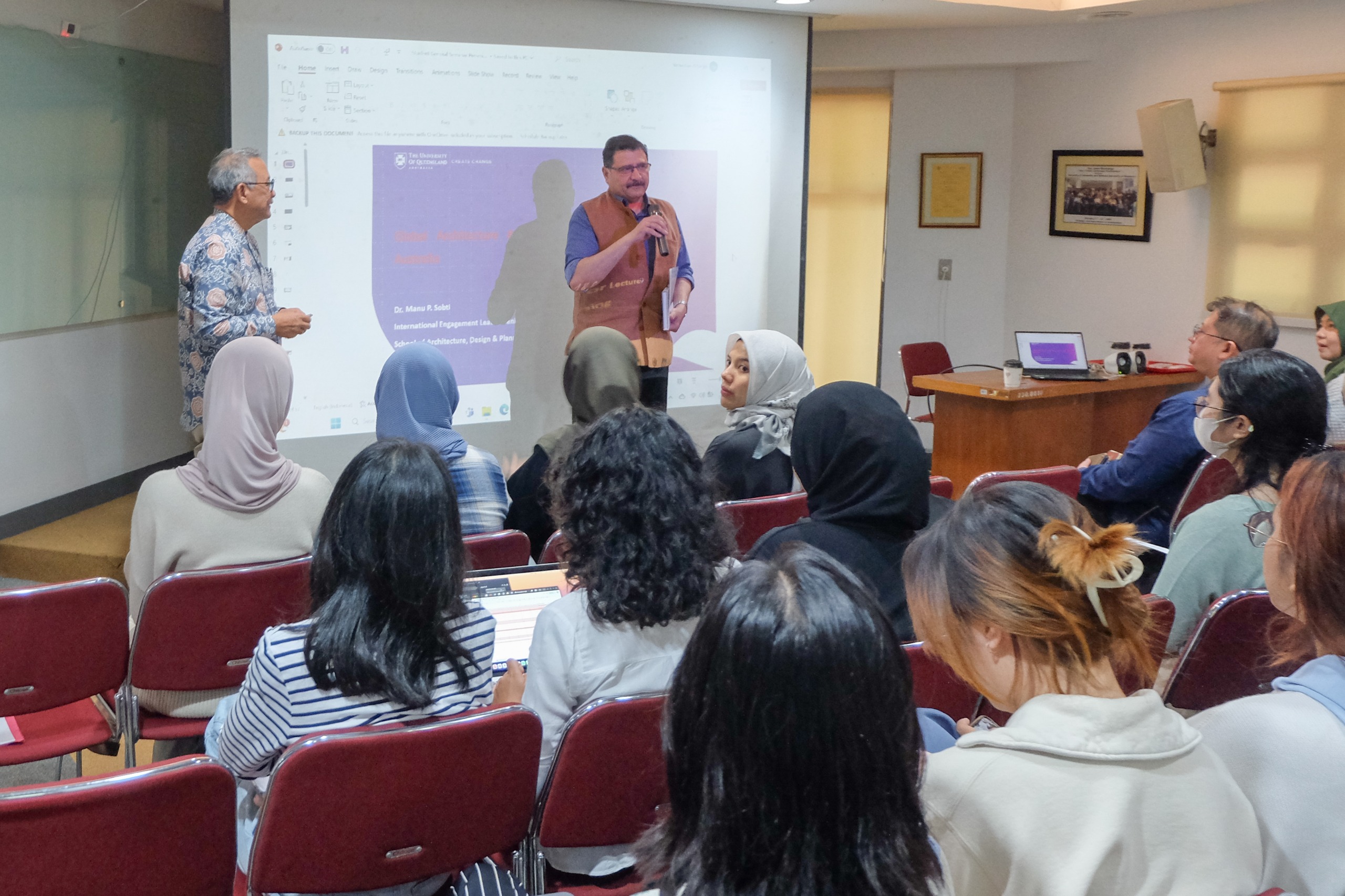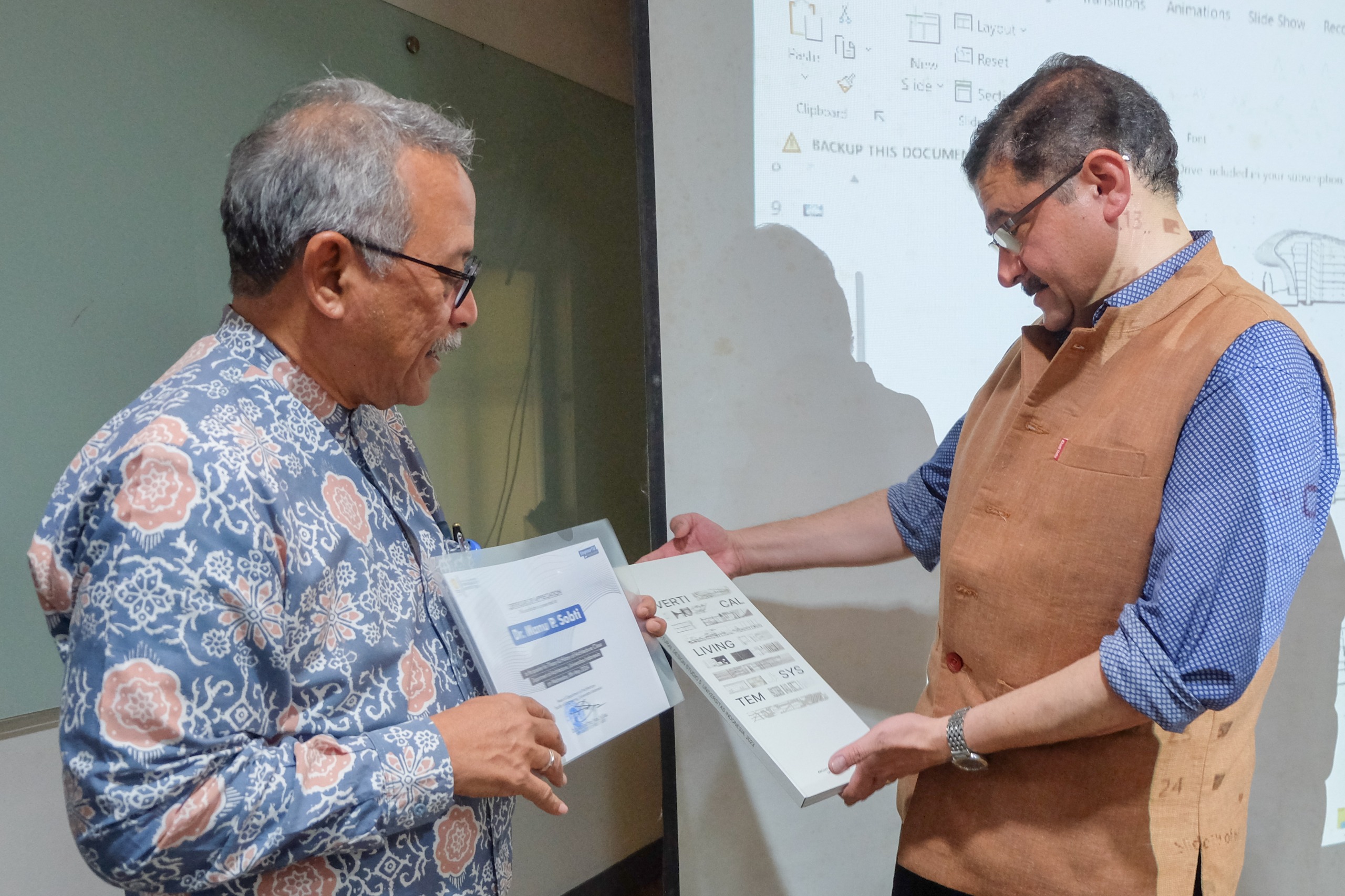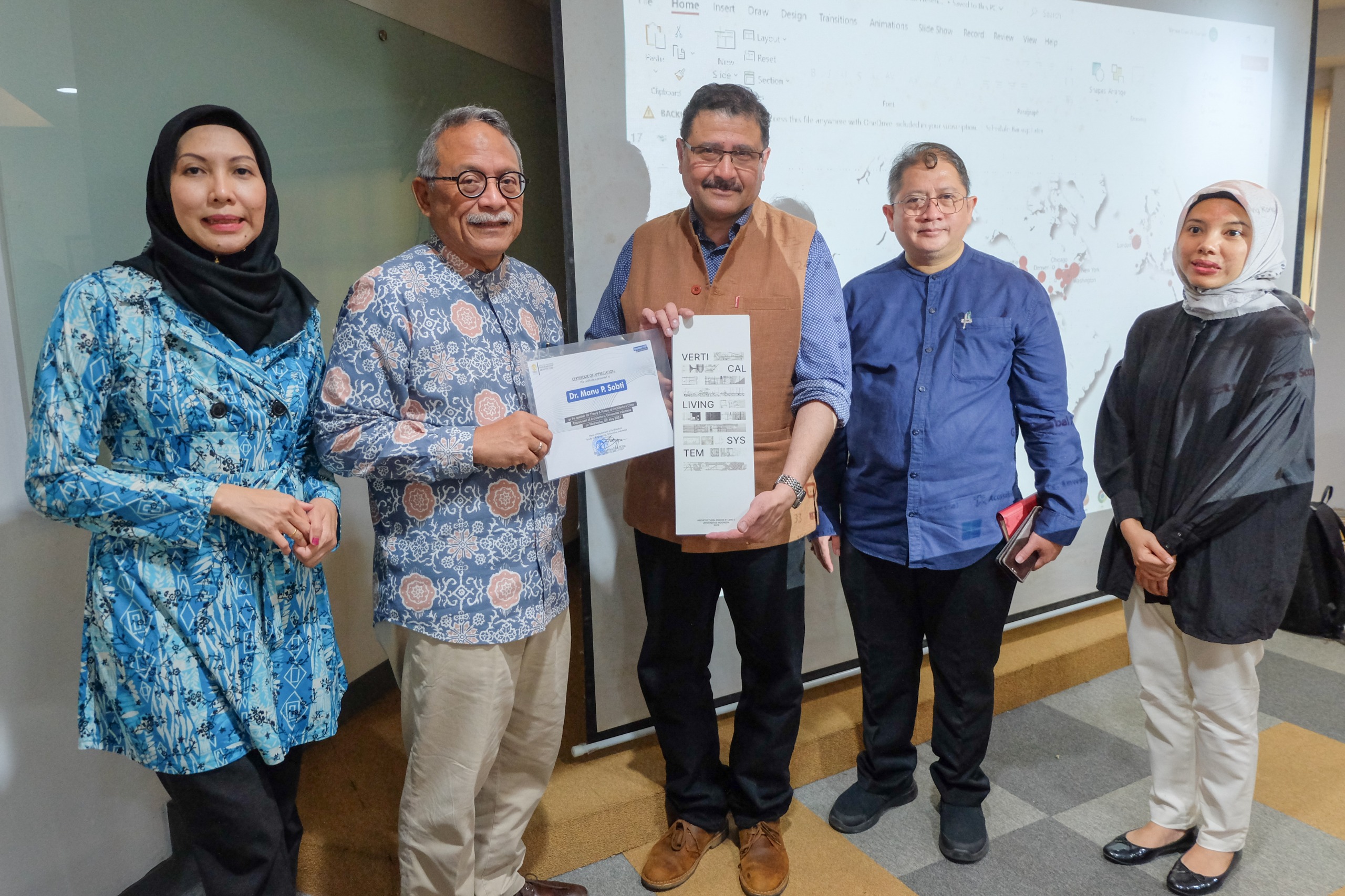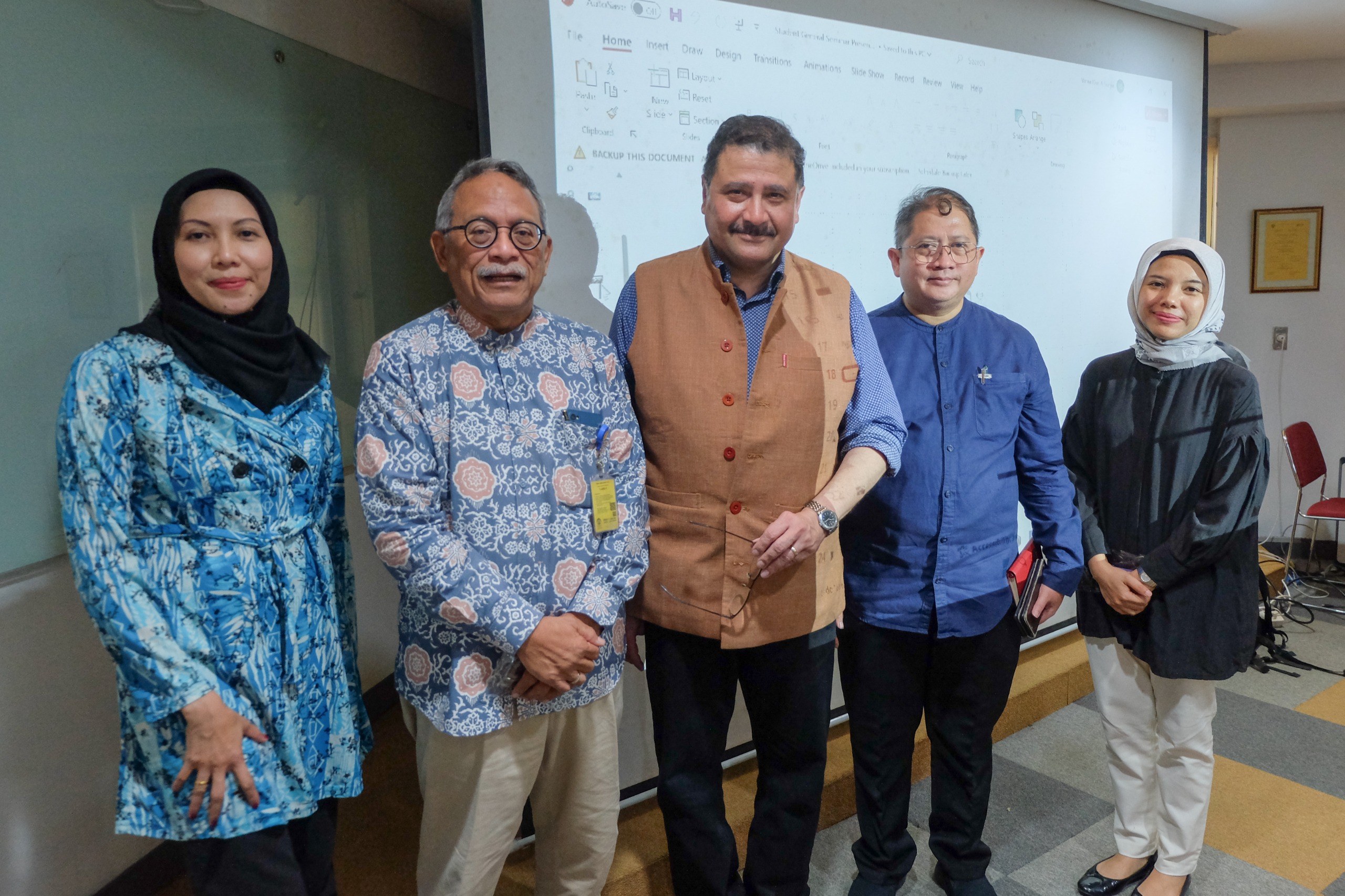On Wednesday (8/5), the Architecture Study Program of the Architecture Department, Faculty of Engineering, Universitas Indonesia (FTUI) held a guest lecture featuring Dr. Manu P. Sobti from the University of Queensland. He delivered a lecture titled “Architecture, Globalization & Change in Asia.” The lecture was held in person in the Multimedia Room, FTUI Architecture Department Building, from 10:00 to 12:00 WIB, and was attended by students from the History and Theory of Architecture course.
Kicking off the lecture, Manu referenced the book “The World Is Flat: A Brief History of the Twenty-first Century” (2005) by Thomas L. Friedman, an international bestseller that examines the forces of global change, especially in the early 21st century. The book illustrates that the world now has a level playing field in trade, where all competitors have equal opportunities. It also suggests that countries, companies, and individuals must remain competitive in the global market as historical and geographical differences become less significant.
“Asia’s transformation has led to a vastly different population compared to the past – its worldview is multivalent, resilient, poly-cultural, and globally nomadic,” said Manu Sobti.
He explained that continuous migration between global countries from 2005 to 2010 influenced Asia’s economic growth. This can be seen from the significant increase in Gross Domestic Product Purchasing Power from 1980 to 2017.
In Asia today, land and landscape changes are at an alarming rate. Cities in Asia are experiencing unprecedented changes. According to the UN, nearly 180,000 people move to cities every day, roughly 2 people every second. For example, in Chengdu, China, the population has increased from less than 900,000 in 1950 to over 14 million.
Manu Sobti concluded his presentation by showing photos of changes in the Gangnam Area, Seoul, and Bukchon Hanok Village. The images depicted progressive urban transformation, with random and repeated changes occurring in Gangnam compared to the gradual changes in Bukchon Hanok Village.
FTUI Dean, Prof. Dr. Ir. Heri Hermansyah, S.T., M.Eng., IPU, stated, “I extend my gratitude to Dr. Manu for taking the time to deliver a public lecture at FTUI. Dr. Manu’s presence provided deep insights into the impact of globalization on architecture in Asia. The lecture titled ‘Architecture, Globalization & Change in Asia’ is highly relevant for understanding the dynamics of change in Asia. We hope that through events like this, our students will be better prepared to face the challenges and opportunities in the global architectural world.”
Dr. Manu P. Sobti is a landscape historian and urban speaker in the Global South, with research specializations in South Asia, Southeast Asia, Central Asia, and the Middle East. Previously, he was an Associate Professor at the School of Architecture & Urban Planning (SARUP), University of Wisconsin-Milwaukee USA (2006-16). He holds a B.Dipl.Arch. from the School of Architecture-CEPT (Ahmedabad – INDIA), an SMarchS. from the Massachusetts Institute of Technology (Cambridge – USA), and a Ph.D. from the College of Architecture, Georgia Institute of Technology (Atlanta – USA).
In collaboration with the Art History Program at the University of Wisconsin-Madison, and colleagues at SARUP, Sobti coordinated the Building-Landscape-Culture (BLC) Concentration of the SARUP-UWM Doctoral Program (2011-13), creating opportunities for research students in various fields of architectural and urban history and diverse global environments. He served as Chair of the SARUP PhD Committee between 2014-16, leading the BLC research consortium titled Urban Histories and Contested Geographies.
***
Public Communication Office
Faculty of Engineering, Universitas Indonesia

